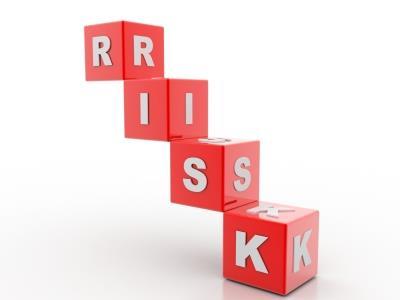StrategicRISK’s latest survey highlights key business risks

Rapidly changing global economic conditions are the primary concern for risk professionals, according to the findings of our inaugural StrategicRISK EMEA Risk Report benchmark survey.
Some 120 risk managers across the EMEA region were polled for the survey, with 10 per cent of respondents from France.
Eight years after the global financial crash there are serious worries that another period of economic crisis is looming. The end of China’s economic boom and stagnation or lack of growth in Europe and the US are among a series of indicators which are causing widespread business alarm. Respondents also cited market volatility and instability, falling oil prices, Brexit uncertainty and concerns around emerging market stability as reasons for ranking economic conditions so highly.
Elsewhere in the survey, when respondents were asked score risks based on financial loss for their organisation in the last 12 months, economic conditions also scored highest with almost half EMEA respondents selecting this risk – significantly more than any other.
Targeted cyber attack (internal and external) and increased competition comprised the top three, followed by failure to innovate, attracting and retaining talented workforce, damage to company reputation/brand, tightening and changing regulation, contractual risk, failure of critical IT systems and political risk.
Growing awareness of the scale of cyber-related risk and the potential magnitude of its consequences, particularly from a reputational perspective offers a partial explanation as to why these risks rank so highly.
Increased competition and failure to innovate both demonstrate why the rapidly-changing business environment has heightened corporate risk. The “threat of OTT players” and a generally “competitive environment” were highlighted as reasons to be concerned by some of those who completed the EMEA survey.
Attracting and retaining a talented workforce is another key risk from the survey top 10, ranking at five. This reflects the struggle of many companies to find individuals with the right qualifications and experience. Recruiting young people with the technical skills now required by the majority of companies is a challenge if those businesses do not appear as exciting as other potential suitors which offer Google-type working environments.
Even if they can find the right talent, keeping hold of people is also a struggle. The concept of company loyalty is diminishing rapidly, again particularly among young people, and many look for new roles within a couple of years – taking their knowledge with them. Recruitment represents a major investment for companies, especially in terms of developing talent, so losing people after a short period can represent a double blow.
Changing regulation and contractual risk also feature among the top ten and are indicative of the size and complexity of business risk, particularly across a multinational jurisdiction.
All these major risks are interconnected, although the strength and nature of those links differs. Certainly regulatory and political risk are closely intertwined.
Thoughts around Donald Trump’s US presidency fell outside the scope of the survey as it was undertaken between September and the beginning of November 2016. It closed just ahead of the US election. Given the subsequent outcome, it would be reasonable to assume that another survey carried out among the same group of risk professionals now might see political risk rank higher among the top ten risks.
The election of Trump was the second major political earthquake of 2016 following the UK’s decision to leave the European Union after its referendum in June. Neither result was widely predicted but both are likely to have significant consequences for business and also societally in Europe, the US and elsewhere in 2017.
With details of the UK’s departure from the EU still unclear and mired in legal argument, and Trump’s real policy agenda also murky, precisely what impacts these two events will trigger is difficult to predict as yet, let alone assess in any specific detail.
Nonetheless, the fact that there is so much uncertainty about both is in itself a serious risk because of the inertia it creates. Indeed, “uncertainty” is a word used often by the risk professionals who undertook the survey. It is one which applies to many of the risks they ranked but for Brexit in particular, it is especially important as there are so many fundamental unknowns.
There has been some impact as a result of Brexit already in terms of currency fluctuations – and this is likely to be the reason why currency/FX risk is equal second in terms of the number of EMEA respondents citing it as a financial loss in the past 12 months.
Brexit is an issue which will impact primarily on the UK and will also affect the EU’s other member states – particularly in France, its closest neighbour. How much concern there is about Brexit beyond the EU’s borders is less obvious and there will be both opportunities as well as threats, so it is a difficult issue to scrutinise currently.
Political shocks may well continue in Europe in 2017 with crucial elections in France and Germany. Both countries have seen a rise in the type of populist sentiment that brought Trump to power and secured victory for those seeking Brexit. A win for French National Front leader Marine Le Pen may still seem unlikely but it is not impossible and certainly should not be dismissed.




















No comments yet